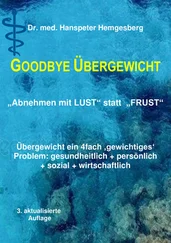Mary cleared her throat and turned her head aside to cough. Now she had ruined everything. She couldn’t help feeling that there was a psychological connection between this part of the passage and her coughing fit. When she had read it yet again this morning, it had struck her as the zenith of false modesty: love boasting about not boasting, love unbelievably pleased with itself for not being puffed up. Until then, it had seemed to be an expression of the highest ideals, but now she was so tired and nervous she couldn’t quite shake off the feeling that it was one of the most pompous things ever written. Where was she? She looked at the page with a kind of swimming panic. Then she spotted where she had left off, and pressed forward, feeling that her voice did not quite belong to her.
but whether there be prophecies, they shall fail; whether there be tongues, they shall cease; whether there be knowledge, it shall vanish away. For we know in part, and we prophesy in part. But when that which is perfect is come, then that which is in part shall be done away.
When I was a child, I spake as a child, I understood as a child: but when I became a man, I put away childish things. For now we see through a glass, darkly; but then face to face: now I know in part; but then shall I know even as also I am known.
And now abideth faith, hope, love, these three; but the greatest of these is love.
Erasmus had not listened to Mary’s reading of St Paul’s Epistle to the Corinthians. Ever since Annette’s address, he had been lost in speculation about the doctrine of reincarnation and whether it deserved to be called ‘literally nonsensical’. It was a phrase that reminded him of Victor Eisen, the Melrose family’s philosopher friend of the sixties and seventies. In philosophical discussions, after a series of vigorous proofs, ‘literally nonsensical’ used to rush out of him like salt from a cellar that suddenly loses its top. Although he was now a rather faded figure without any enduring work to his name, Eisen had been a fluent and conceited public intellectual during Erasmus’s youth. In his eagerness to dismiss, which in the end may have secured his own dismissal, he would certainly have found reincarnation ‘literally nonsensical’: its evidence-free, memory-free, discarnate narrative failed to satisfy the Parfittian criteria of personal identity. Who is being reincarnated? That was the devastating question, unless the person who was asked happened to be a Buddhist. For him the answer was ‘Nobody’. Nobody was reincarnated because nobody had been incarnated in the first place. Something much looser, like a stream of thought, had taken human form. Neither a soul nor a personal identity was needed to precipitate a human life, just a cluster of habits clinging to the hollow concept of independent existence, like a crowd of grasping passengers sinking the lifeboat they imagined would save them. In the background was the ever-present opportunity to slip away into the glittering ocean of a true nature that was not personal either. From this point of view, it was Parfitt and Eisen who were literally nonsensical. Still, Erasmus had no problem with a rejection of reincarnation on the grounds that there was no good reason to believe that it was true — as long as the implicit physicalism of such a rejection was also rejected! The correlation between brain activity and consciousness could be evidence, after all, that the brain was a receiver of consciousness, like a transistor, or a transceiver, and not the skull-bound generator of a private display. The…
Erasmus’s thoughts were interrupted by the sensation of a hand resting on his shoulder and shaking him gently. His neighbour, after securing his attention, pointed to Mary, who stood in the aisle looking at him significantly. She gave him what he felt was a somewhat curt nod, reminding him that it was his turn to read. He rose with an apologetic smile and, crushing the toes of the woman who had shaken him on the shoulder, made his way towards the front of the room. The passage he had to read was from Revelations — or Obfuscations as he preferred to call them. Reading it over on the train from Cambridge, he had felt a strange desire to build a time machine so that he could take the author a copy of Kant’s Critique of Pure Reason.
Erasmus put on his reading glasses, flattened the page against the slope of the lectern, and tried to master his longing to point out the unexamined assumptions that riddled the famous passage he was about to read. He might not be able to infuse his voice with the required feeling of awe and exaltation, but he could at least eliminate any signs of scepticism and indignation. With the inner sigh of a man who doesn’t want to be blamed for what’s coming next, Erasmus set about his task.
Then I saw a new heaven and a new earth, for the first heaven and the first earth had passed away, and the sea was no more.
Nancy was still furious with the clumsy oaf who had stepped on her toes and now, on top of that, he was proposing to take the sea away. No more sea meant no more seaside, no more Cap d’Antibes (although it had been completely ruined), no more Portofino (unbearable in the summer), no more Palm Beach (which was not what it used to be).
And I saw the holy city, new Jerusalem ,
Oh, no, not another Jerusalem, thought Nancy. Isn’t one enough?
coming down out of heaven from God, prepared as a bride adorned for her husband; and I heard a great voice from the throne saying, ‘Behold, the dwelling of God is with men. He will dwell with them and they shall be his people, and God himself will be with them; he will wipe away every tear from their eyes, and death shall be no more, neither shall there be mourning nor crying nor pain any more, for the former things have passed away.’
All these readings from the Bible were getting on Nancy’s nerves. She didn’t want to think about death — it was depressing. At a proper funeral there were amazing choirs that didn’t usually sing at private events, and tenors who were practically impossible to get hold of, and readings by famous actors or distinguished public figures. It made the whole thing fun and meant that one hardly ever thought about death, even when the readings were exactly the same, because one was struggling to remember when some tired-looking person had been chancellor of the exchequer, or what the name of their last movie was. That was the miracle of glamour. The more she thought about it, the more furious she felt about Eleanor’s dreary funeral. Why, for instance, had she decided to be cremated? Fire was something one dreaded. Fire was something one insured against. The Egyptians had got it right with the pyramids. What could be cosier than something huge and permanent with all one’s things tucked away inside (and other people’s things as well! Lots and lots of things!) built by thousands of slaves who took the secret of the construction with them to unmarked graves. Nowadays one would have to make prohibitive social-security payments to teams of unionized construction workers. That was modern life for you. Nevertheless, some sort of big monument was infinitely preferable to an urn and a handful of dust.
And he who sat upon the throne said, ‘Behold, I make all things new.’ Also he said, ‘Write this, for these words are trustworthy and true.’ And he said to me, ‘It is done. I am the Alpha and the Omega, the beginning and the end. To the thirsty I will give water without price from the fountain of the water of life. He who conquers shall have this heritage, and I will be his God and he will be my son.’
Johnny couldn’t help being reminded by all these readings of a paper he had written in his opinionated youth, called ‘Omnipotence and Denial: The Lure of Religious Belief.’ He had made the simple point that religion inverted everything that we dread about human existence: we’re all going to die (we’re all going to live for ever); life is terribly unfair (there will be absolute and perfect justice); it’s horrible being downtrodden and powerless (the meek shall inherit the earth); and so on. The inversion had to be complete; it was no use saying that life was pretty unfair but not quite as unfair as it sometimes seemed. The pallor of Hades may have been its doom: after making the leap of believing that consciousness did not end with death, a realm of restless shadows pining for blood, muscle, battle and wine must have seemed a thin prize. Achilles said that it was preferable to be a slave on earth than king in the underworld. With that sort of endorsement an afterlife was headed for extinction. Only something perfectly counterfactual could secure global devotion. In his paper Johnny had drawn parallels between this spectacular denial of the depressing and frightening aspects of reality and the operation of the unconscious in the individual patient. He had gone on to make more detailed comparisons between various forms of mental illness and what he imagined to be their corresponding religious discourse, with the disadvantage of knowing nothing about the religious half of the comparison. Feeling that he might as well solve all the world’s problems in twelve thousand words, he had tied in political repression with personal repression, and made all the usual points about social control. The underlying assumption of the paper was that authenticity was the only project that mattered and that religious belief necessarily stood in its way. He was now faintly embarrassed by the lack of subtlety and self-doubt in his twenty-nine-year-old self. Still in training, he hadn’t yet had a patient, and was therefore much more certain about the operation of the human psyche than he was today.
Читать дальше












